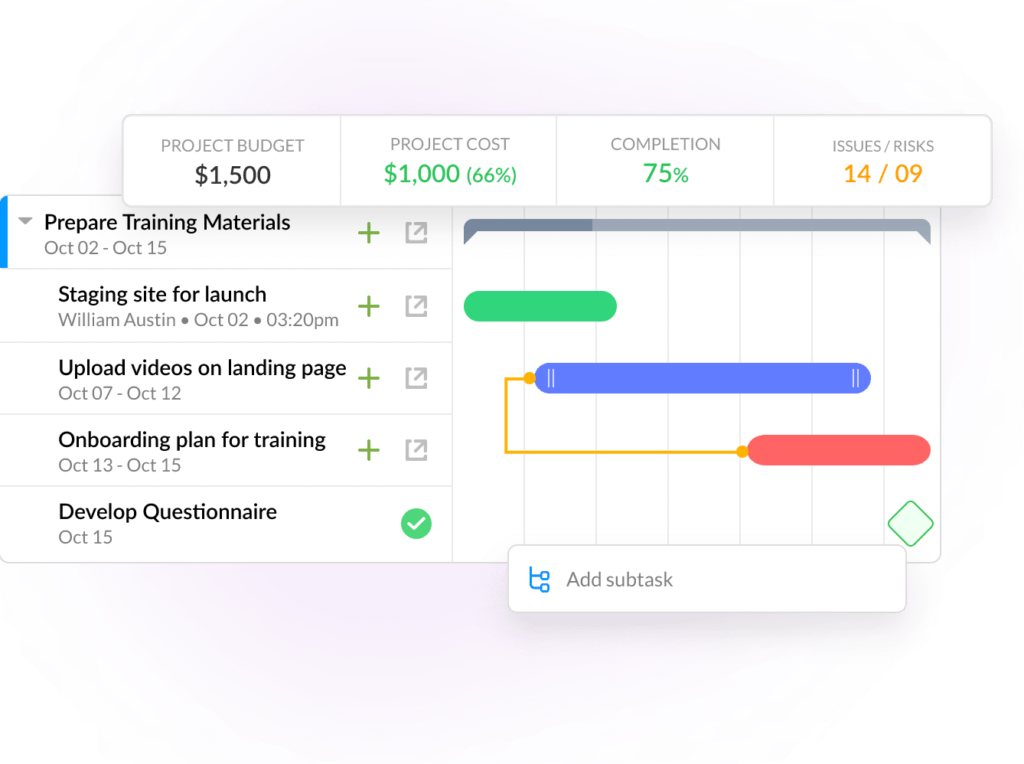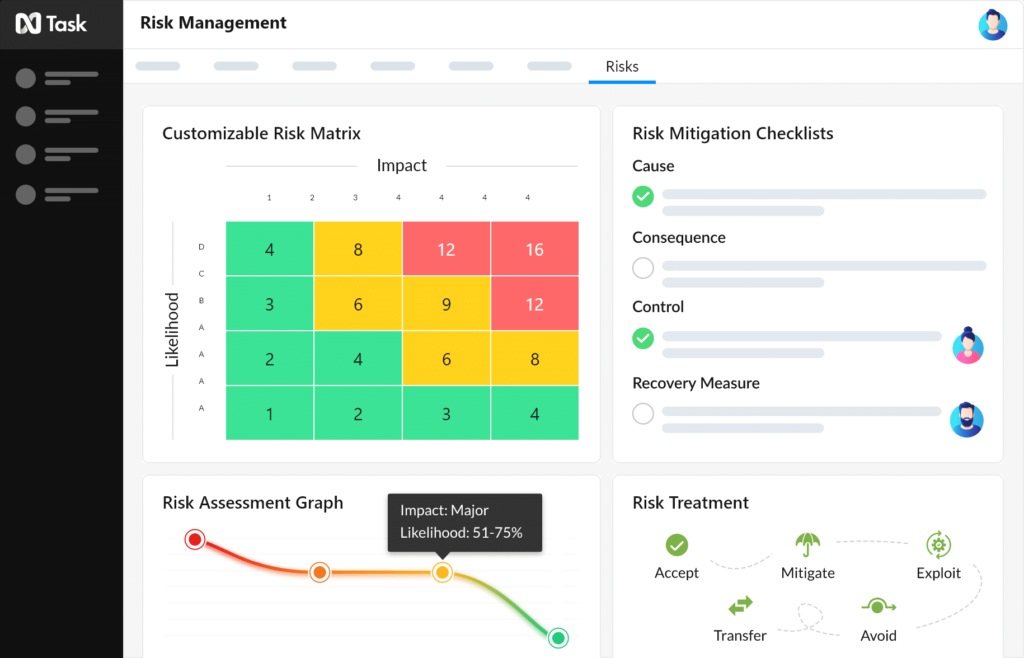Technical program management is critical for today’s companies, as it helps ensure that projects are successfully completed on time and within budget.
Many companies now use agile methodologies, which rely heavily on software development and project management tools.
If a project is not managed correctly, it can lead to problems down the road. In this article, we’ll explore the basics of technical program management, and explain why it’s so important for today’s businesses.
Job duties for a technical program manager
Technical program managers are responsible for overseeing the development and execution of software projects.
They use their expertise in software engineering to ensure that projects are completed on time, within budget, and to the highest standards.
In addition, they are responsible for ensuring that all stakeholders (internal and external) are kept up to date on project progress.
Technical program managers typically have a background in computer science or a related field. They need excellent communication and problem-solving skills, as well as strong organizational skills.
They also need experience working with different types of stakeholders (management, marketing, etc.).
1. Defining requirements
As a technical program manager, you are responsible for the successful delivery of a software project. To do this, you need to understand the needs of your users and make sure that your project meets those requirements.
There are several ways in which you can go about doing this. You could use surveys or interviews to gather feedback from potential users.
Alternatively, you could use requirements-gathering tools like user stories or storyboards to capture users’ ideas and perceptions of the product.
2. Defining project scopes
As a technical program manager, it’s important to be able to define project scopes accurately and effectively. This will help you manage your projects and avoid any delays or complications.
To do this, you first need to understand the different types of projects that are common in software development. There are three main types of projects: products, features, and tasks.
Product projects are those that result in the creation of a new product or system. They typically involve developing new functionality or improving on an existing one.
3. Managing schedules
As a technical program manager, your biggest challenge is ensuring that the projects you manage are completed on time and within budget.
This can be a difficult task, given the ever-changing demands of your clients and the ever-growing complexity of the projects you’re responsible for.
One way to make sure that your projects stay on track is to develop a schedule that reflects the overall goals of the project and the specific needs of each component.
This schedule should be updated regularly as conditions change, and it should take into account any changes or modifications made to the project itself.
4. Testing and reviewing solutions
As a technical program manager, one of your biggest responsibilities is to test and review solutions before they’re implemented. This is crucial because it ensures that the solution meets the required specifications and that there are no unforeseen problems.
Testing and reviewing solutions can be done in a number of ways. You could use manual or automated tests to check the functionality of the solution, as well as its compatibility with other systems.
You could also use code reviews to ensure that the code is written properly and conforms to best practices. And finally, you could do usability testing to check how users feel about the solution in practice.
5. Generating reports
Technical program managers are responsible for ensuring that the software they are overseeing meets the required standards and requirements.
In order to do this, they need to be able to generate comprehensive reports that provide detailed information about the project’s progress.
There are a number of different ways that TPMs can generate reports, but the most common approach is to use Excel or another spreadsheet application.
TPMs will typically enter data about each phase of the project into a spreadsheet, and then use formulas and other calculations to produce detailed reports about specific aspects of the project.
This information can then be used to make informed decisions about whether or not the project is on track, and whether any revisions or changes are necessary.
Skills for a technical program manager

1. Communication skills
If you’re a technical program manager, then you need to be able to communicate effectively with other members of your team and stakeholders.
This is important not just for the smooth running of your project, but also for building trust and credibility with them.
The best way to improve your communication skills is by training yourself in various techniques.
For example, you can learn how to present data in an understandable way, how to negotiate and resolve conflicts diplomatically, and how to create positive relationships with others.
You can also practice these skills through role-playing exercises or online tools.
2. Technical skills
If you want to be a successful technical program manager, then you need to have some technical skills. Though not all of them are essential, knowing some of them will definitely help you in your role.
When it comes to programming, for example, you need to be able to read and write code fluently. This is important because it allows you to understand the inner workings of programs and make changes that will improve their functionality.
Additionally, being familiar with different programming languages can give you an edge when bidding on projects – as well as help you in your day-to-day work.
3. Project management

As a technical program manager, you are responsible for overseeing the completion of a variety of technical projects. In order to successfully carry out your role, it is essential that you have a strong understanding of project management principles.
To help you get started, we’ve put together a guide on how to manage your technical projects effectively.
This guide covers topics such as setting goals, planning and tracking progress, and managing risks. By following these tips, you will be able to keep your projects on track and ensure that they are completed on time and within budget.
4. Risk management

Technical program managers are responsible for the success of their projects by managing a variety of risks. Here are some tips to help you manage those risks:
- Establish Clear goals and objectives for your project, and make sure that the risks associated with achieving those goals are taken into account.
- Identify and assess the potential risks to your project from all sources, both internal and external, and take appropriate action to mitigate or avoid them.
- Plan and monitor your project continuously to ensure that it meets all established milestones and expectations.
- Establish credible metrics to measure the success of your project, and use these metrics to make informed decisions about further improvements or changes to your project.
5. Leadership
A technical program manager is an important leader in any software development project. Their leadership skills are crucial to ensuring that the project progresses smoothly and that all stakeholders are satisfied with the results.
Technical program managers must be able to lead and motivate their team, keep track of deadlines and ensure that all projects are completed on time.
They also need to be able to communicate effectively with other team members, clients, and stakeholders, as well as prioritize and manage resources effectively.
6. Business knowledge
As a technical program manager, you’re responsible for managing the development of software and hardware solutions. In order to do this effectively, you need to have a good understanding of business.
One of the most important things you need to know is how businesses generate profits. You can learn about this by reading business books or websites, or by attending business seminars.
You also need to be familiar with different software development methodologies so that you can make informed decisions when it comes to choosing which one to use.
Education for a technical project manager
A technical project manager is a highly specialized professional who helps manage and coordinate complex technical projects. In order to be successful in this field, it’s important to have a solid education in engineering or related fields.
There are a number of relevant educational institutions that offer programs that will equip you with the skills you need to be a successful project manager.
Some of the most popular schools include the University of California at Berkeley, Politecnico di Milano, Imperial College London, and Massachusetts Institute of Technology (MIT).
The objective of these programs is to teach you how to successfully coordinate multiple teams and work within tight deadlines. They also emphasize the importance of problem-solving and management skills.
After completing one of these courses, you’ll have the knowledge and skills necessary to manage any type of technical project.
What Teams Do TPMs Work With?
If you’re looking to become a technical project manager, then you’ll need to have a strong foundation in computer science and some engineering skills. However, there are a number of ways to get the education and experience that you need. Here are some options:
- Complete an accredited software engineering or project management program.
- Take online courses in software development or project management.
- Attend conferences and workshops on these topics.
- Join an online community that focuses on software development or project management.
- Use online tools like Coursera to supplement your education with learning modules from top universities and industry professionals.
Why is technical program management important for today’s companies?
Technical program management (TPM) is a critical function for today’s companies. It’s responsible for ensuring that software and hardware programs are delivered on time, within budget, and to the correct customer.
The benefits of effective TPM are numerous. First and foremost, it ensures that your company remains competitive by delivering high-quality products on time.
This can save you money in the long run because it means you don’t have to re-engineer or re-design your software or hardware frequently.
Additionally, effective TPM can help ensure that your products meet customer expectations, which leads to happier customers who are more likely to recommend your company to others.
In addition to these benefits, effective TPM also helps reduce risk by providing a clear picture of project status at all times.
This knowledge allows you to make informed decisions about whether or not to continue with a project and how best to execute it.
Finally, effective TPM enhances team communication and collaboration because everyone understands the goals of the program and what needs to be accomplished in order for them to be met.
What kind of person is best suited for a technical program management position?
A person who is well-versed in technical program management is vital for any organization that relies on software development as a core part of its business.
They need to be able to understand the ins and outs of software development, as well as have a deep understanding of the technology involved.
They also need to be able to keep track of all the various stages of a project, from planning through execution, and ensure that deadlines are met without compromising quality or scope.
To be successful in this role, it’s important to have excellent communication skills.
The program manager must be able to effectively communicate with everyone involved in a project – from developers to executives – and make sure that everyone is on the same page.
They must also be able to quickly identify any problems or issues that may arise, and take appropriate steps to address them.
How did you get your start as a Technical Program Manager?
There are a few different routes that you can take to becoming a Technical Program Manager.
One route is to have previous experience working in the software development industry, and then transition into a TPM role. Alternatively, you could gain experience in another technical field and then move into a TPM role.
Whatever your route may be, the important thing is that you have the necessary skills and experience to be successful in this position.
You’ll need to be able to manage multiple projects simultaneously, navigate complex bureaucracies, and understand the ins and outs of software development processes.
In addition, you’ll need excellent communication and collaboration skills so that you can work effectively with other members of the team.
What’s the most surprising aspect of a TPM job?
There are a lot of surprising aspects of TPM jobs, but one of the most surprising is the level of responsibility and accountability that comes with the role.
TPM jobs often involve working closely with clients, which means that you have to be able to handle high-pressure situations and remain impartial.
Another surprising thing about TPM jobs is the amount of multitasking that’s required. You need to be able to keep up with fast-paced deadlines and stay on top of complex tasks, all while still providing quality service.
And last but not least, you need to be able to work in a team environment and communicate effectively with your colleagues.
Conclusion
As you can see, a Technical Program Manager has the potential to increase your product’s success rate by several folds.
To get the right person for this role, it is important that you understand what they do and why they are such an indispensable part of product development teams.
We have been hiring technical program managers for a long and have also interviewed hundreds of candidates over time. Call us if you want some assistance with your search!
You May Also Like:
- The Difference Between Program Management and Project Management
- 10 Powerful Tools for Program Management
- A Comprehensive Guide to Understanding Program Management for Agile Teams
- 10 Project Manager Objectives to Improve Performance
- What is a portfolio manager in project management?
- 9 Reasons Why You Should Hire A Virtual Project Manager To Grow Your Business
